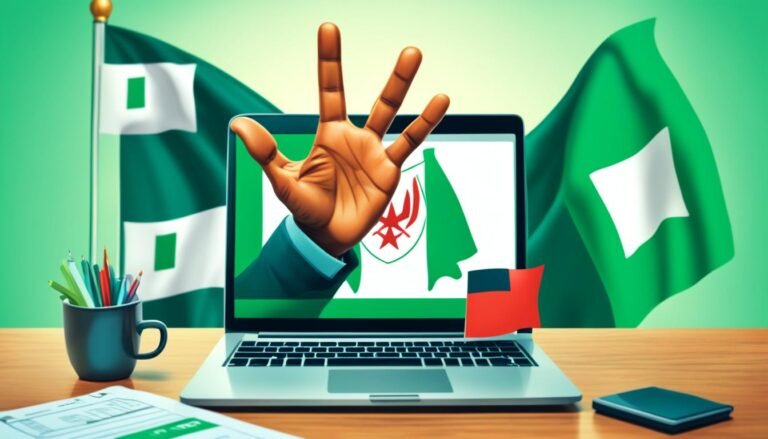How to start a business in the Philippines
Did you know the Philippines’ economy has been growing fast? It’s been jumping up by 6% each year. This makes it a great place for business and new ideas. We’ll help you start your dream business in the Philippines. This guide will show you how, from understanding the market to legal steps. Let’s get your business going!
The country has over 100 million people, meaning there are many potential customers. It’s in Southeast Asia, which is good for business. Also, the cost of work is favorable. This makes the Philippines attractive for companies from abroad. What’s more, it’s easy to communicate since English is widely spoken. So, starting a business here feels familiar.
Want to start a business by yourself or with others? This guide has everything you need to know. We will guide you through legalities and permits. Also, picking the right spot for your business is key. By following this, starting up will be smooth. Here’s to your success!
Heard about Wise Business? It’s great for sending and receiving money for your business. You can save on fees and get excellent exchange rates. This way, you can invest more in your business. Wise Business helps you keep more of your money. Let’s get started.
### Key Takeaways
– The Philippines is becoming a hotspot for business and investment.
– It’s rich in market potential thanks to its big, young population and strategic location.
– The country’s English-speaking culture welcomes foreigners warmly.
– There are different business structures to choose from, each with specific requirements.
– Understanding and navigating through legal requirements is crucial to start a business here.
Understanding the Philippine Business Landscape
In recent years, the Philippine business landscape has seen steady economic growth. This has made the country an appealing spot for foreign investment and starting new companies. It offers great chances for business in different fields thanks to its big, young population and its key spot in Southeast Asia.
Economic Growth and Opportunities
The Philippine economy is growing at a rate of about 6-7% each year. This opens up big opportunities for entrepreneurs to join a fast-growing market. Industries like tourism, manufacturing, IT, and real estate are leading this growth. They are also giving foreign investors several strong business opportunities.
Cultural Compatibility and Language
Doing business in the Philippines is good because of its cultural compatibility with the West. English is widely used and is the second official language. This makes it easier for foreign business owners to talk with local workers.
The country’s colonial history has brought Western ways into its business practices and etiquette. This helps foreign entrepreneurs understand and work within the local business scene. While it’s important to learn about the local culture, the use of English in the Philippines cuts down on the language problems that can happen in other parts of Asia.
Choosing the Right Business Structure
Foreigners can set up a business in the Philippines. They can pick between a few structures like sole proprietorships, partnerships, and corporations. Each type has different rules and affects owner liability.
Sole Proprietorship
In the Philippines, a sole proprietorship is the most straightforward. The owner takes on all business decisions and debts. To start one, you just need to get a DTI certificate. It’s great for foreign business owners because it’s easy and has little paper-work. Plus, it’s flexible for small businesses.
Partnership
Want to work with others? A partnership might be the best fit. Partnerships could be general or limited types. A limited partnership means your risk is only as big as your investment. This is an option for foreigners and is regulated by the SEC. It’s good for pooling resources but needs clear responsibilities among partners.
Corporation
Thinking of a bigger or more serious business? Consider a corporation. It’s a legal entity by itself and gives limited liability. Setting one up means filing with the SEC and meeting legal steps. It allows up to 100% foreign ownership in some cases. Yet, there may be limits in certain industries. Corporations are great for growth but require more effort to set up.
Preparing the Legal Documents
Starting a business in the Philippines means you have to get some legal documents ready. The kind of documents you need depends on how your business is set up. If it’s a corporation, you’ll have to submit articles of incorporation to the Securities and Exchange Commission (SEC). For partnerships, you need to create a partnership agreement. Make sure it’s notarized before you hand it in.
Articles of Incorporation or Partnership Agreement
The articles of incorporation or partnership agreement must have key details about the business. Stuff like the company’s name and address, how much money it can work with, and info about the people involved. These are critical documents, forming the basis of your business.
Business Registration and Permits
Getting your business legal also means registering it with the right Philippines government offices. Sole proprietors get a certificate from the Department of Trade and Industry (DTI). Corporations and partnerships register with the SEC. Everyone needs to get different permits and licenses from local officials. This includes a mayors’ business permit, a barangay clearance, and other specific permits. These steps make sure your business follows all the rules.
The whole process of setting up and getting these permits isn’t quick or easy, especially for people from other countries. It’s wise to get help from locals or from pros who understand how to get through these steps fast. Doing this can save you a lot of time and trouble.
Securing Necessary Licenses and Clearances
In the Philippines, to run a business legally, entrepreneurs need to get several business licenses and clearances. This process involves getting a mayor’s business permit, a barangay clearance, and any special licenses tied to the business type. The specific ones you need will vary based on your business and where it is located, so you must look into this deeply.
If you don’t get the right permits, you could face fines or have to stop your business. It’s a tricky process because you have to work with many government offices and meet different rules. To make it easier and ensure you do everything right, it’s wise to get help from local pros or service providers.
| Business License | Purpose | Issuing Authority |
|---|---|---|
| Mayor’s Business Permit | Authorizes the operation of a business within a specific local government unit (LGU) | Local government unit (city or municipality) |
| Barangay Clearance | Certifies that the business is compliant with the regulations of the local barangay (smallest administrative division) | Barangay office |
| Industry-Specific Licenses | Varies depending on the nature of the business (e.g., for restaurants, manufacturing, etc.) | Relevant government agencies (e.g., Department of Trade and Industry, Department of Health, etc.) |
Finding the Perfect Location
Choosing the best business location in the Philippines translates to choosing success. It’s vital to look at several factors for your site’s success.
Factors to Consider
Being close to target customers and being easily seen and reached is key. You also need to check if the location has all the needed infrastructure and utilities. The price for the space is critical too, affecting your business’s costs up front.
For foreign business owners, understanding the local business environment and special economic zones or areas is wise. Some areas offer benefits which could make your business start-up easier.
Leasing Agreements and Permits
After picking the perfect spot, you need to get the right leasing agreements and permits. This means talking lease terms with the space owner and getting official okays from the local government.
The lease should clearly state how long you can stay, how much you pay, and any extra costs. Make sure it all looks good and get a lawyer’s check. This avoids problems down the road.
Don’t forget the permits. Starting a business in the Philippines without them is a no-go and could get you in trouble. Since the process can be tricky, local advice is a must.
How to start a business in the Philippines
Market Research and Business Plan
Before you start your business in the Philippines, research the market first. This is key to knowing the local scene, finding your potential customers, and seeing your competitors. A business plan is a must. It should say what you’ll sell, who you will sell to, how you’ll let people know, and your money and work plans. Think of it as your business guide. It’s also what you need to get money if you need it. Doing good market research and writing a good business plan are both very important. They help you make smart choices, reduce risks, and have a better chance at success.
Financing Options
Starting a business in the Philippines usually means you need to invest a lot at first, from PHP 100,000 to PHP 1,000,000 (about USD 1,700 to USD 18,000) to just get going. There are many ways to get this money. You could use your own savings, get loans, apply for grants, or find investors. You should pick the option that fits your business plans and what you can afford. Choosing the right way to finance is really important. You have to know what you need, look at all your choices, and then decide the best way to get going.
Setting Up Your Business Bank Account
Setting up a business bank account is key when starting a business in the Philippines. It keeps the business’s money apart from the owner’s. This makes tracking money in and out much easier. Business owners need to have certain documents to open one, like their business’s registration papers, a proof of address, and IDs. Some banks might also ask for money to start the account.
A business bank account gives your business a more professional look. It makes it easier to do things like get paid, pay bills, and keep track of all money moves. This is very important for anyone starting a business in the Philippines.
Establishing a Workspace
Starting a business in the Philippines begins with creating a good business workspace. You might rent an actual office or work from home. It depends on the type and size of your business.
When picking a workspace, think about who needs to visit you often. This could be your customers or partners. It should be a place that helps you work well every day, supporting your business’ needs.
Always make sure your choice follows local laws. Get any needed permits and connect to utilities like the internet. This careful setup helps your new business run smoothly and succeed.
Hiring and Complying with Labor Laws

In the Philippines, entrepreneurs may need to hire based on their business size and needs. It’s key to know and follow the country’s labor laws. This includes giving employees benefits and registering them with government bodies.
Employee Benefits and Registration
Employers must contribute to the SSS, PhilHealth, and Pag-IBIG for their employees. They need to register their employees with these agencies. This ensures that workers are protected and the business stays legal. Not doing so could lead to fines and trouble with the law.
Meeting the country’s labor regulations is vital. This means following minimum wage, working hour limits, and giving paid leave and overtime. Keeping updated with labor laws is essential for business owners. They should seek help from legal and HR experts to understand complex issues.
Complying with labor laws has benefits. It keeps the business safe from legal troubles. It also helps create a good work atmosphere. Employees know their rights and see their employer as someone who cares for them. This can lead to the business doing well and having a good image.
Marketing and Promoting Your Business
It’s crucial to market and promote your business well in the Philippines. Though digital marketing is growing, traditional ways are still powerful here.
Traditional Marketing Methods
Ways like print ads, direct mail, and event sponsorships can boost your brand. They are good for certain people or areas. It’s key to adapt messages to fit local tastes and work with local experts.
Social Media and Digital Marketing
The Philippines loves digital, making it great for social media and online ads. Sites like Facebook and Instagram are big for connecting with customers and selling. A good website and SEO can boost your online reach.
Using both old and new marketing tools makes a strong plan. Watch your results and change your approach as needed. This helps your efforts go further and reach the right people.
Tax Compliance and Obligations
Being up-to-date with tax rules is crucial for businesses in the Philippines. They need to know about different taxes, like the Value-Added Tax (VAT) and income tax. This knowledge helps them avoid penalties and legal trouble.
Value-Added Tax (VAT)
The VAT is a major tax for Filipino businesses. It’s a 12% tax on most goods and services. Companies must add VAT to what they sell, collect it from buyers, and give it to the government. They should keep thorough records and file on time. If they don’t follow the rules, they can face fines. Knowing how VAT works and staying compliant is very important.
Income Tax
Besides the VAT, companies in the Philippines also pay income tax on their earnings. This tax rate depends on their business type. Corporations pay 25% income tax, while individual business owners pay between 0% and 35%. Paying the right amount of income tax is key to staying out of trouble with the tax authorities. It’s wise to get help from tax experts to understand these complex rules.
Employee Withholding Taxes
Companies must also withhold some taxes from their employees’ pay and give these to the government. This includes the SSS, PhilHealth, and Pag-IBIG. They must register and manage this accurately and on time. Doing this helps in keeping good tax standing for the business.
FAQ
What are the key advantages of starting a business in the Philippines?
The Philippines is on the rise with its economy and large, youthful population. It has good cultural ties with the West, drawing in investors. The use of English makes it easier for foreign companies.
What are the main business structures available for foreign entrepreneurs in the Philippines?
As a foreigner looking to start a business, you can pick from sole proprietorships to corporations. Each one has its own set of rules on ownership and liability.
What are the key legal documents required to register a business in the Philippines?
What’s necessary changes based on the business type. Corporations file articles of incorporation with the SEC. Partnerships need a notarized agreement.
What licenses and clearances are required to operate a business in the Philippines?
Businesses need permits like a mayor’s business permit and industry-specific licenses. It’s crucial to follow these rules to operate legally.
How can foreign entrepreneurs find the right location for their business in the Philippines?
To choose the best spot for your business, think about your customers, access, and local laws. Make sure to get the right permits and lease agreements.
What are the typical financing options for starting a business in the Philippines?
New business owners can use personal funds, bank loans, grants, or attract investors. These are common ways to get your business up and running.
Why is it important to establish a dedicated business bank account in the Philippines?
It makes managing money and keeping track of business funds easier. Plus, it gives your business a more professional look.
What are the key labor regulations and employee benefits that businesses in the Philippines must comply with?
Businesses need to pay into SSS, PhilHealth, and Pag-IBIG for their employees. They also need to follow rules about wages, hours, and time off.
How can businesses in the Philippines effectively promote and market their products or services?
To reach customers, use both old-school ads and new digital methods. This means using print ads, social media, and SEO for your business.
What are the key tax obligations for businesses operating in the Philippines?
Companies have to deal with VAT and income taxes. Registering and paying these properly is key to avoiding fines and keeping the government happy.







